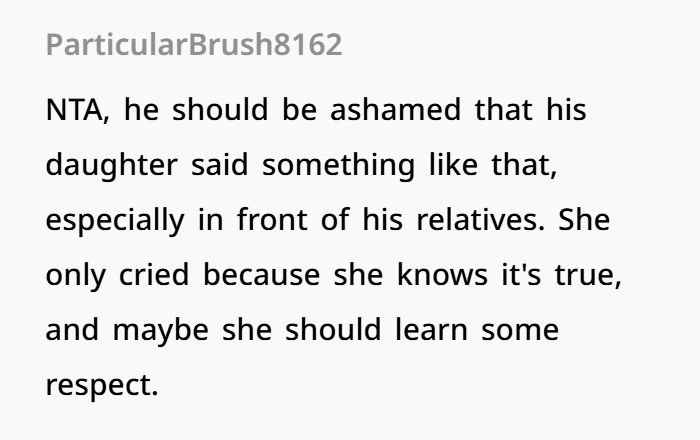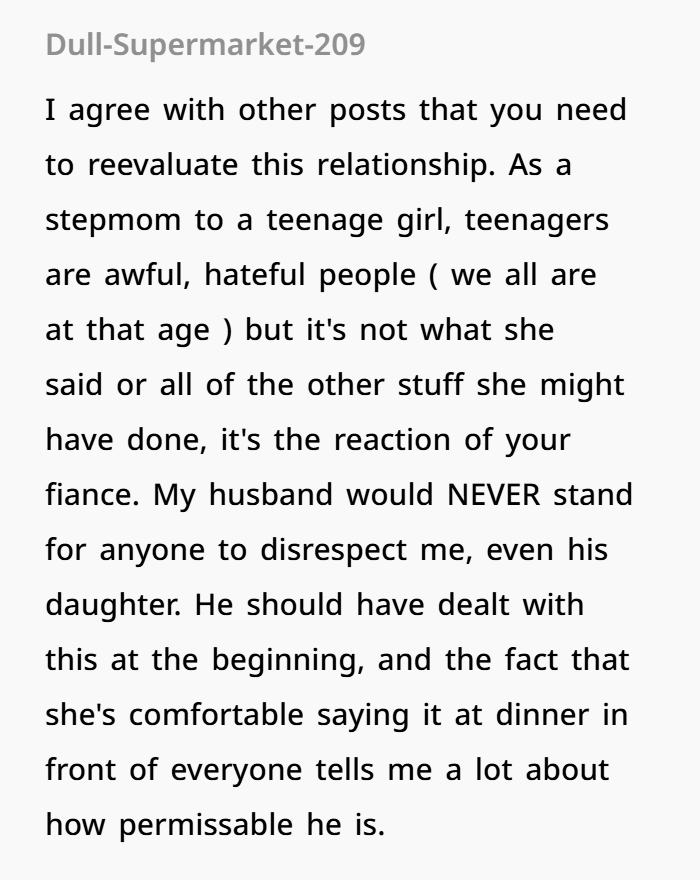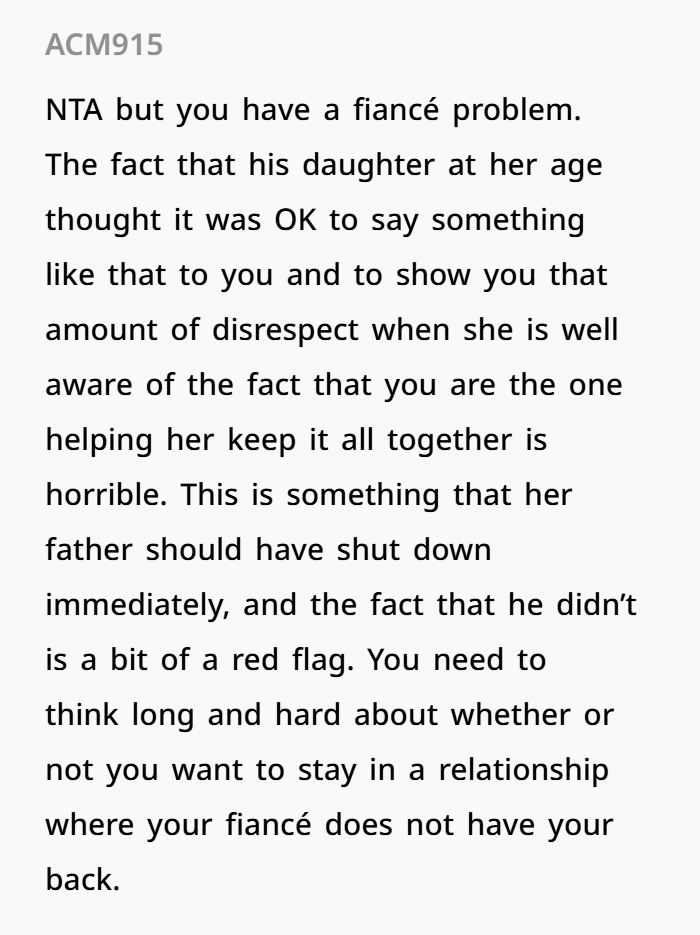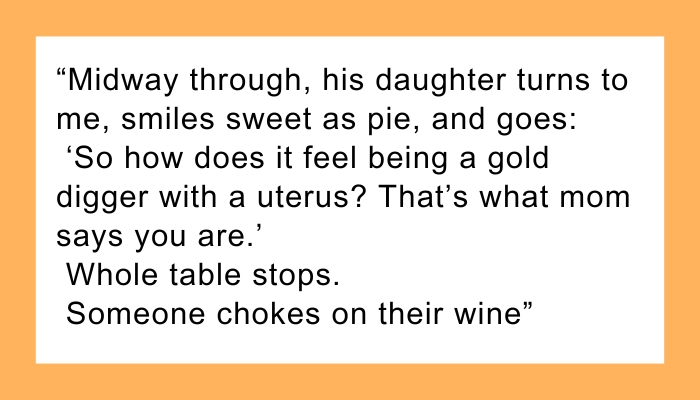Woman Does Her Best To Take Care Of Future Stepdaughter, Yet Is Dubbed A “Gold Digger With A Uterus”
Being a stepparent is never easy. It takes a lot of love, patience, and emotional strength. Building a strong connection with your partner’s child can be tough, especially at first. Many stepparents face blended family challenges, where the child may feel confused, distant, or even resentful.
Sometimes, even after years of care and support, the child may act out. This is exactly what happened to one woman. She had looked after her partner’s daughter for many years, showing kindness and trying to build a strong bond. But one day, the teen lashed out and cruelly called her a “gold digger with a uterus.”
The comment was deeply hurtful. In a moment of anger, the woman reacted emotionally and said something back, lowering herself to the teen’s level. This is a common issue in family relationship struggles, where emotional child behavior can cause real pain, even when the stepparent has the best intentions.
Read for more info Reddit
There can sometimes be difficult moments in a blended family, but it’s important to keep calm and try to understand the other person’s perspective
The poster shared that she had been with her fiancé for almost 4 years and had cared for his daughter by being a support system in ways her mother wasn’t
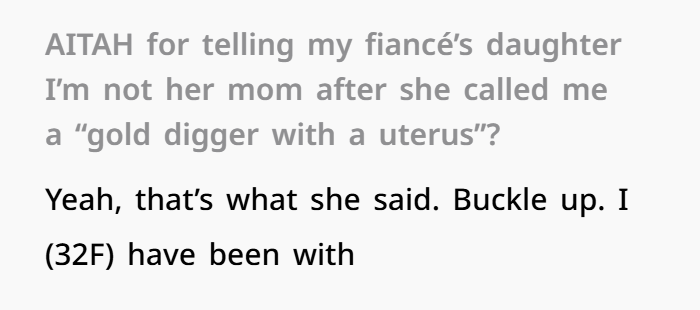
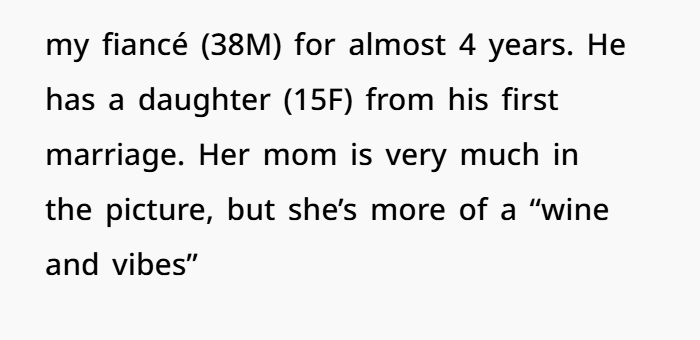
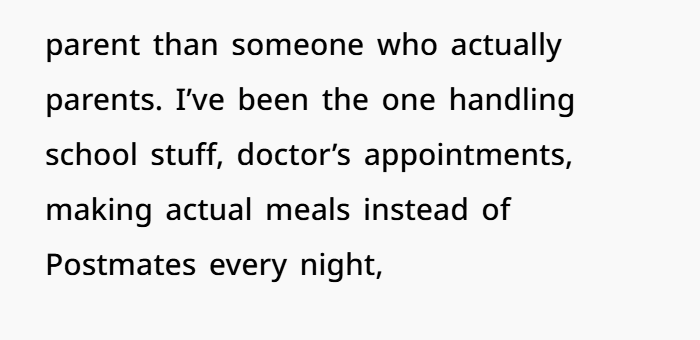
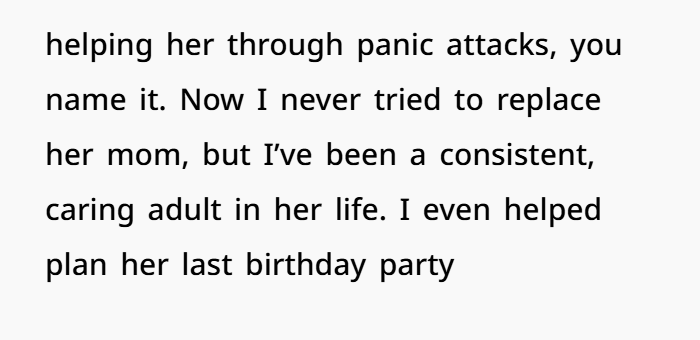
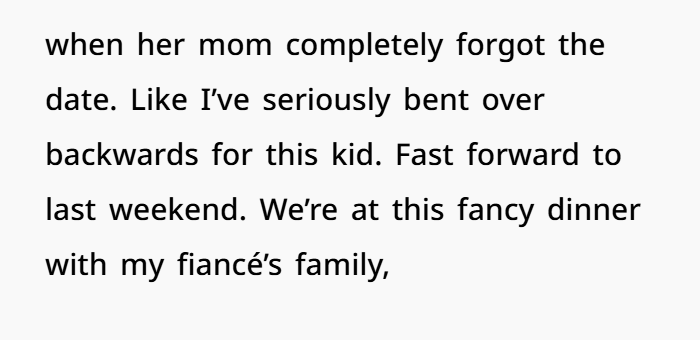
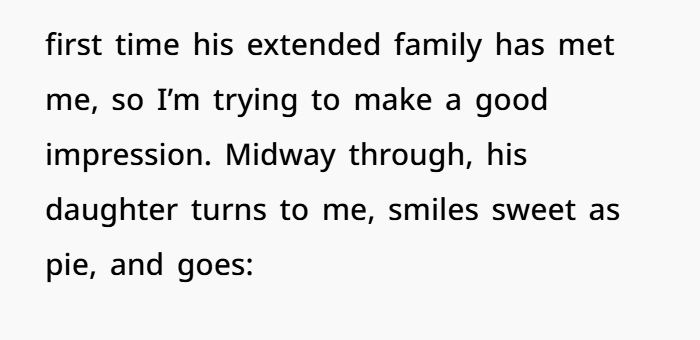


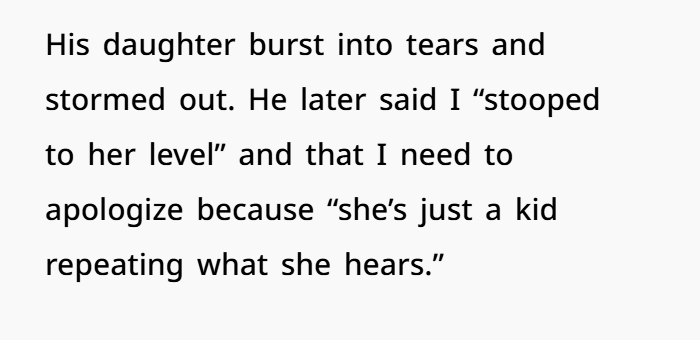
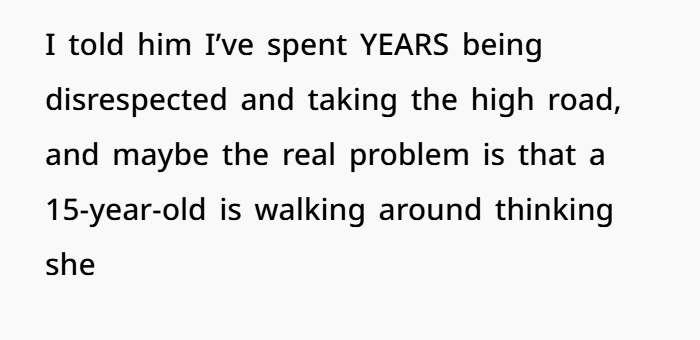
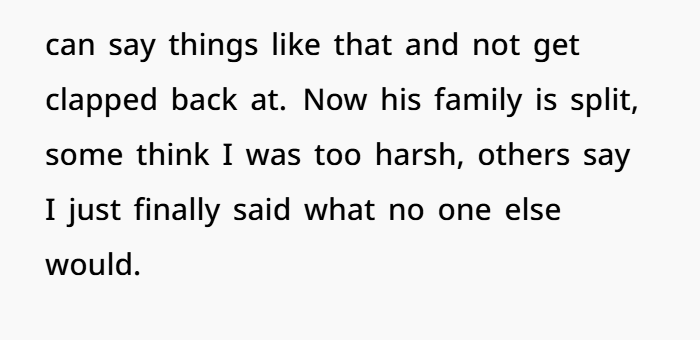
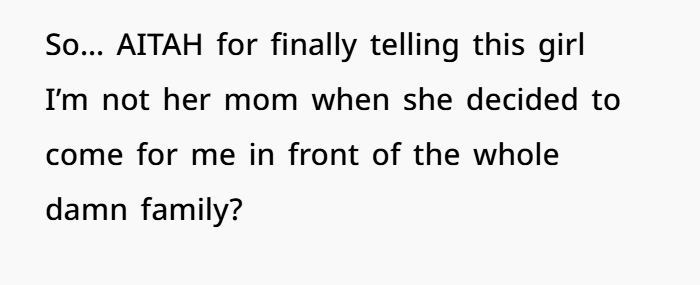
Unfortunately, the conflict left the teen in tears, and the man was angry with his fiancée for laying into his daughter
One woman shared her painful experience of being insulted by her partner’s teenage daughter—a girl she had supported for many years. The child’s biological mother wasn’t very present, so this woman stepped in to offer love, guidance, and stability. That’s why it hurt so deeply when, during a family dinner, the teen called her a “gold digger with a uterus” in front of everyone.
For years, the woman had taken the high road, staying calm and kind despite the tension. She never reacted negatively to disrespect, whether it came from the teen or her biological mom. But this time, the words hit too hard. It felt like a deep betrayal after all the emotional investment she had made.
Experts in blended family dynamics say this situation is more common than many people think. According to Alison O’Mahony, founder of Be StepWise, a platform that offers resources for stepparents, comments like that usually aren’t coming directly from the child’s own thoughts. “When a 15-year-old says something that cruel, she’s repeating something she heard elsewhere—often from a parent who feels threatened or angry,” Alison explained.
Understanding the source of emotional manipulation is the first step for any stepparent. In many coparenting situations, one biological parent might influence the child against the stepparent. This creates a lot of emotional confusion for the child, who feels torn between showing loyalty to both sides.
Certified family coach and blended family expert Naja Hall also shared insight on this issue. She pointed out that a teen’s brain is still developing, especially the part responsible for decision-making and emotional control. “That doesn’t excuse bad behavior, but it helps explain why a teenager might say something so cruel—especially when dealing with the pain of an absent mother,” she said.
Naja added that when a child feels abandoned or emotionally distant from one parent, they often lash out at the other adult in their life—the one who is actually showing up and caring for them. “It’s a heartbreaking but common dynamic: the person who’s most present becomes the easiest target. Why? Because the child feels safer expressing anger where love feels secure.”
Alison also emphasized the emotional pressure these children face. “The child is trying to stay loyal to both parents. But if she defends the stepparent, her mother may see it as betrayal. That can make the child feel like she might lose her mom’s love or approval,” she explained. In many high-conflict co-parenting situations, the child ends up being the one who manages the emotions of a volatile parent.
This story is a powerful reminder of the emotional challenges of stepparenting. Even when you do everything right—stay consistent, show love, and avoid retaliation—it can still be incredibly painful. But understanding what’s really going on behind the scenes can help stepparents respond with empathy and strength.
In blended families, stepparents often work hard to create harmony and build trust. But when things go wrong—especially in public—it can feel isolating and overwhelming.
One woman shared how she had cared for her partner’s daughter for years, stepping into a parenting role when the girl’s biological mother wasn’t emotionally present. Despite her efforts, during a family dinner, the 15-year-old humiliated her in front of everyone, including her fiancé and their extended family, by calling her a cruel and offensive name.
What hurt the most wasn’t just the insult—it was that no one stood up for her. Not even her fiancé. That silence left her feeling angry, betrayed, and deeply alone. It’s no surprise that she finally snapped and responded to the girl, confronting her in front of the group.
According to family conflict expert and certified coach Naja Hall, the woman’s reaction may have been bold, but it wasn’t wrong. “That was a clapback, no doubt,” Naja said. “It may sound harsh, but it was necessary. When a teenager repeats toxic language from a bitter parent, they need to learn that words carry real consequences.”
Naja pointed out that it’s important to teach children how to use their voice wisely. “We can’t let kids grow into emotionally reckless adults who echo the negativity of others. The stepmother didn’t retaliate out of spite—she responded with strength. It was a teachable moment about accountability, and the daughter likely didn’t expect to be challenged.”
While stepparents are often told to always remain calm and composed, Naja stressed that it’s also okay to set clear boundaries in parenting, even if it involves standing up for yourself with firmness and dignity.
Alison O’Mahony, founder of Be StepWise and a respected voice in stepparenting guidance, highlighted a critical issue: the fiancé’s failure to step in. “This was his moment to show leadership. He should’ve paused the situation and addressed his daughter’s behavior immediately, possibly asking her to step aside for a private talk and to apologize.”
Instead, he turned his anger toward his fiancée for upsetting his daughter, ignoring the emotional damage his partner had endured. No one at the table supported her, leaving her to handle the conflict entirely alone.
Alison issued a strong warning: “If your partner doesn’t back you up as a stepparent, that sets a dangerous pattern. Without support from your partner, you’re left vulnerable to continued disrespect, and the child may feel empowered to behave badly again.”
She added that many stepparents write to her in similar situations—confused, hurt, and unsure what to do because they have no authority over the child. “Maybe it’s a good thing she’s still a fiancée. She needs to think carefully about her future with this man and what kind of role she wants in this family,” Alison said.
The woman’s experience shows how deeply complicated blended family dynamics can be—especially when parental alienation plays a role. She had invested love and effort, only to be dismissed by those around her. And without her fiancé’s support, her position in the family felt even more fragile.
It’s a reminder that in toxic co-parenting situations, the emotional weight often falls on the stepparent—especially when loyalty conflicts and unresolved pain from an absent parent are involved.
Folks were concerned for the woman and felt that her partner was not supporting her enough in the relationship
